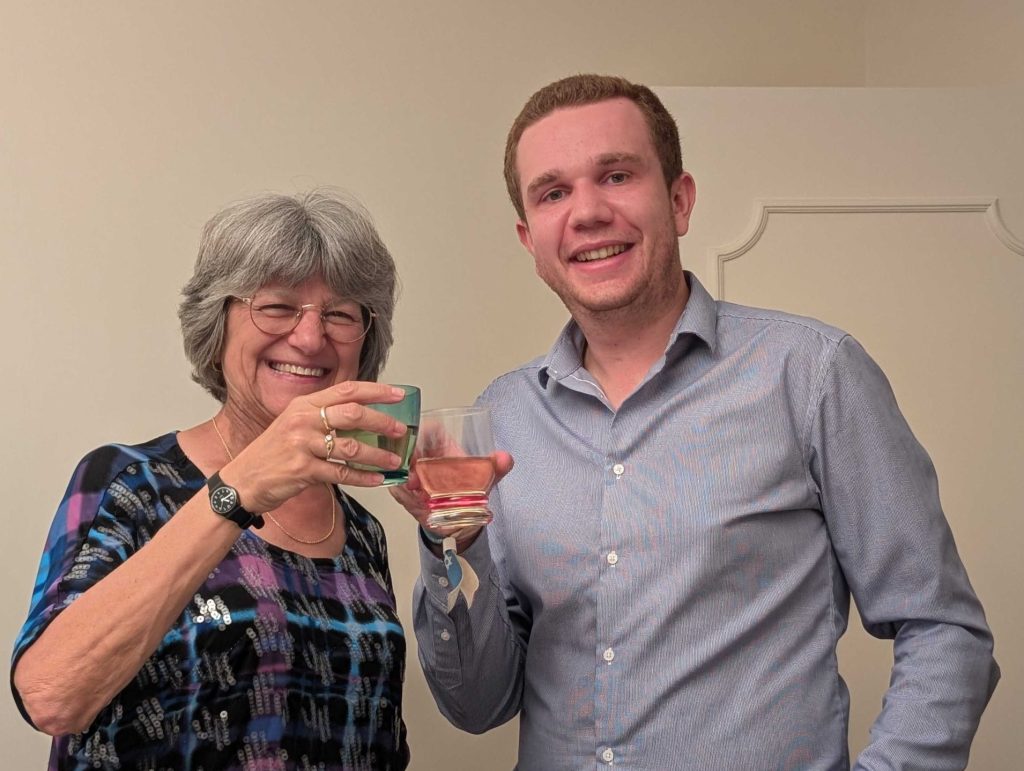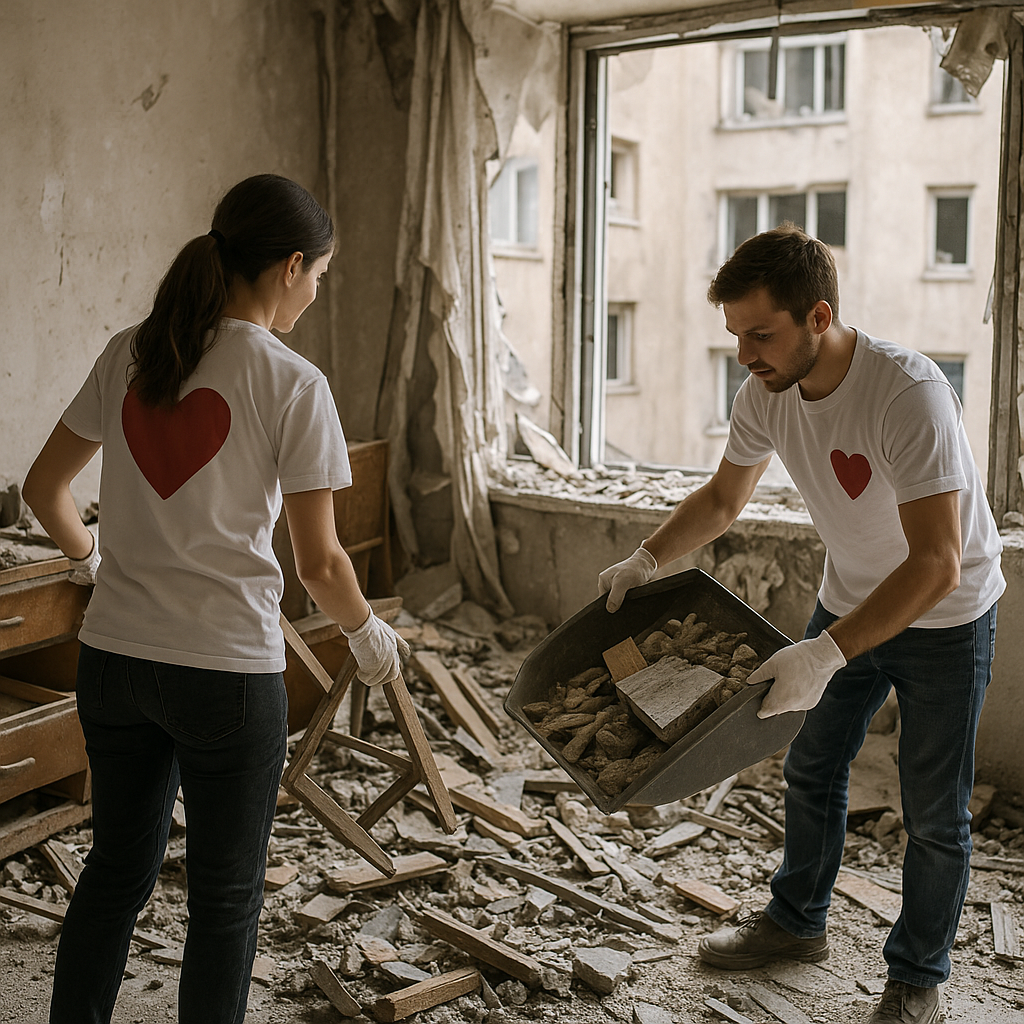
By all public measures, the 12-day war with Iran was a time of fear, uncertainty, and disruption. Sirens heard across Israel. Airspace closures left thousands of citizens stranded abroad. For many, this period will be remembered for its tension. But for others, it revealed something else entirely: a vast, global network of support activated almost entirely by instinct.
Beyond the headlines and press conferences, there emerged a quiet mosaic of action — one made not by institutions or governments, but by individuals who refused to wait for instruction.
In Paris, Voice of the People council member Youval Ouaknine stepped in to support those caught in limbo. When Pearl Mattenson, a VOP facilitator, and her husband were stuck en route to Tel Aviv, Youval, who works at the airport for Air France, offered them a place to stay. He then personally ensured they made it back safely the next morning. This wasn’t an isolated act. In the early days of the conflict, Youval had also supported a group of teenagers from Abu Gosh, Israel who found themselves stranded in France with no clear way home.

These acts of hospitality weren’t born from formal duty, they came from a deeper sense of communal responsibility, a recognition that in moments of uncertainty, being present for one another is everything.
Other initiatives took form on an even broader scale. In Jerusalem, with over 15,000 vacant apartments owned by Jews living abroad, a new volunteer-based housing effort emerged to help vulnerable Israeli families. Spearheaded by grassroots organizers, the project matched families in need, particularly mothers with children whose spouses were called into reserve duty, with empty apartments equipped with security rooms. The effort was quiet, urgent, and undersupplied. The goal was simple: create safety by opening doors.
Across the ocean, VOP Council Member Rabbi Benji Levy, worked quickly to organize a global event for healing and unity. 18 Minutes of Soulful Connection, the online gathering brought together a wide range of Jewish voices, from artists like Idan Raichel and Ishay Ribo to spiritual leaders including Chief Rabbi Yisrael Meir Lau, Rabbi Moshe Weinberger, and Rachel Goldberg and our very own VOP leader President Isaac Herzog. The program featured music, reflection, prayer, and words of strength, and it drew thousands of viewers around the world, all seeking a moment of shared breath amid the noise.

In cities hit hardest by the Iranian missile barrage, a quiet army of civilian volunteers was already moving. One Heart, an emergency response organization in Israel, has become the connective tissue of crisis response. While the army handles the front line and emergency services manage immediate rescue, One Heart arrives in the hours after — to pack belongings, comfort families, clean broken glass, and figure out where displaced people will sleep that night.
Volunteers knock on doors, organize transportation, deliver clothing, and offer support to those who have just lost everything. Since October 2023, the organization has fielded over 90,000 volunteers across the country, helping everyone from farmers to evacuees, hostage families to wounded soldiers. In this most recent round of attacks, they once again stepped into the gap — not with fanfare, but with quiet, relentless dedication.
Another practical initiative emerged from VOP council member Hanna Geller, who launched a live, collaborative guide to connect global Jews with critical resources. The open-access spreadsheet gathered information on everything from emergency housing and Shabbat meal matching to re-planning canceled weddings and supporting families of reserve soldiers. Hanna’s call was simple: “You’re doing amazing things — let’s assemble.”
Meanwhile, the “Bayit Beyachad” (Home Together) initiative, in coordination with Israel’s Ministry of Foreign Affairs, tackled the needs of stranded Israeli tourists caught overseas during the airspace shutdown. With thousands stuck in cities without lodging, the program activated Jewish communities around the world to offer emergency hosting. Through a secure form and a fast-growing volunteer network, they connected travelers with local hosts until flights resumed. It was a reminder that even when borders close, the ties that bind Jews across the world remain open.
None of these efforts began with a campaign. They began with a shared spreadsheet, a text, a phone call, a place to sleep. And they paint a fuller picture of how Jewish solidarity actually works, not as an abstract idea, but as a lived, daily practice.
These efforts weren’t about publicity or points. They were about action.
About trust.
About the deeply human instinct to care for one another, especially in the moments when it would be easiest to look away.
Solidarity isn’t always loud.
Sometimes, it sounds like someone picking you up from the airport.
Sometimes, it looks like a warm meal.
Sometimes, it’s a listening ear.
Sometimes, it’s a song.
Not every act makes the news. But every act makes a difference.



By clicking “Accept All Cookies”, you agree to the storing of cookies on your device to enhance site navigation, analyze site usage, and assist in our marketing efforts.